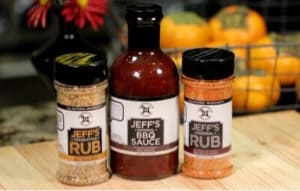Dave makes a great point! If there is any chance the the pork you are getting in Thailand was fed untreated Garbage, food scraps that have not been cooked, the chance of Trichinae go up drastically. Here is the latest cooking temps to kill these nasty parasites directly from the USDA. An IT of 170*F is certainly not necessary but 160*F should still yield a juicy result...JJ
Cooking - Commercial preparation of pork products by cooking requires that meat be heated to internal temperatures which have been shown to inactivate trichinae. For example, Trichinella spiralis is killed in 47 minutes at 52° C (125.6° F), in 6 minutes at 55° C (131° F), and in < 1 minute at
60° C (140° F). It should be noted that these times and temperatures apply only when the product reaches and maintains temperatures evenly distributed throughout the meat. Alternative methods of heating, particularly the use of microwaves, have been shown to give different results, with parasites not completely inactivated when product was heated to reach a prescribed end-point temperature. The U.S. Code of Federal Regulations for processed pork products reflects experimental data, and requires pork to be cooked for 2 hours at 52.2° C (126° F), for 15 minutes at 55.6° C (132° F), and for 1 minute at 60° C (140°F).
The U.S. Department of Agriculture recommends that consumers of fresh pork cook the product to an internal temperature of 71° C or 160° F. Although this is considerably higher than temperatures at which trichinae are killed (about 55° C or 131° F), it allows for different methods of cooking which do not always result in even distribution of temperature throughout the meat. It should be noted that heating to 77° C (171° F) or 82° C (180° F) was not completely effective when cooking was performed using microwaves.




